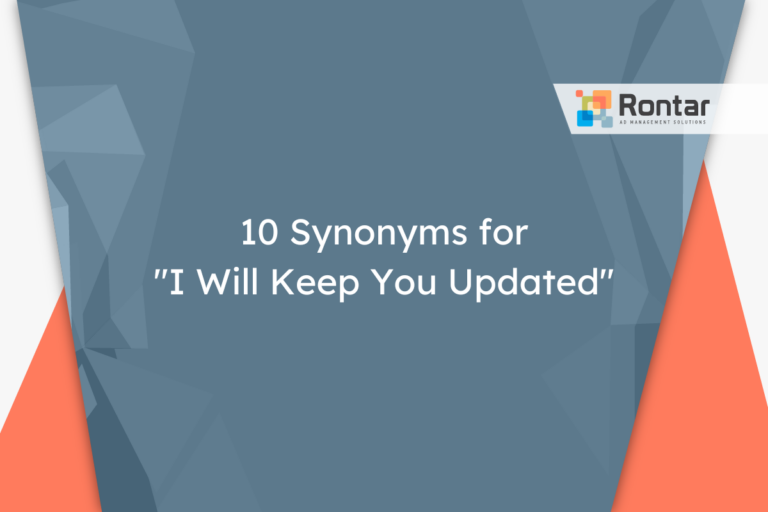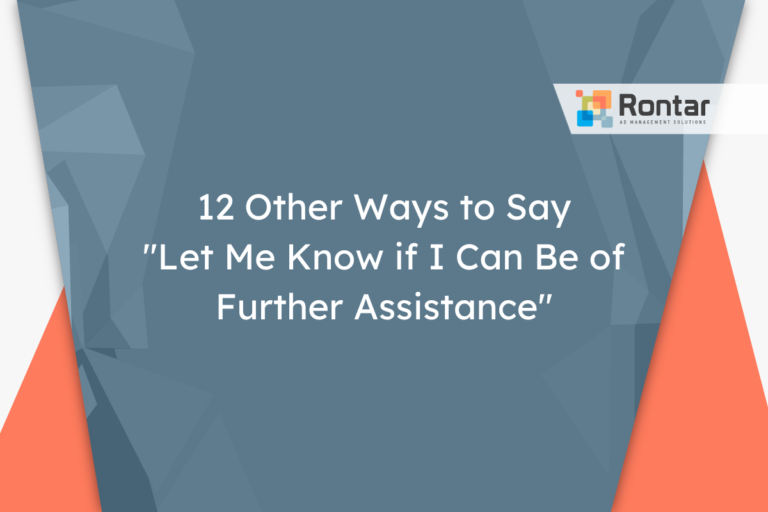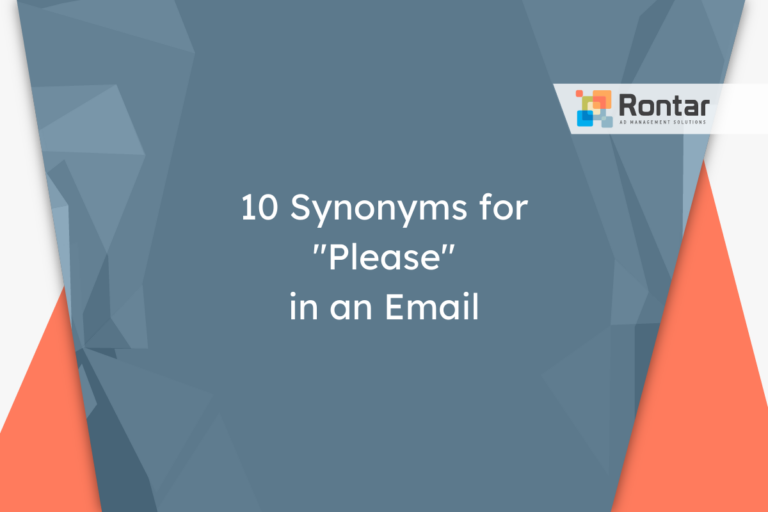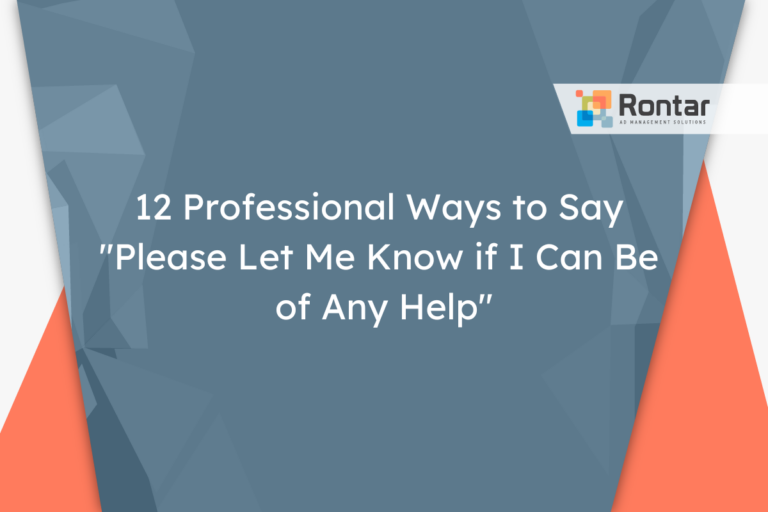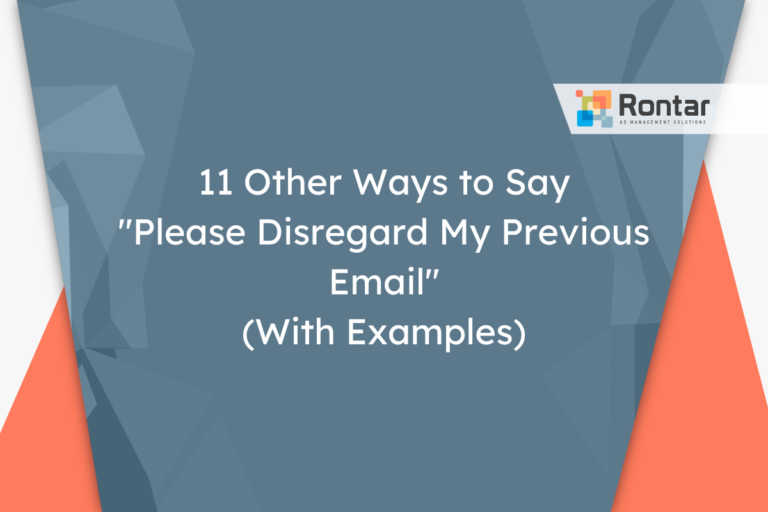12 Synonyms for “Glad You Like It”

Communicating satisfaction or happiness effectively is key in both personal and professional settings. The phrase “glad you like it” is common, but sometimes you need alternatives to match the tone of different situations.
This article lists 12 different ways to express the same sentiment, each with its own level of formality and context. It aims to help you choose the right words to convey your message clearly and appropriately.
Is It Professional to Say “Glad You Like It”?
The phrase “glad you like it” is informal and polite, but it may not always be deemed professional. It tends to convey a casual tone, making it a better fit for less formal situations.
This phrase is suitable when interacting with colleagues you have a friendly relationship with, clients you’ve developed a casual rapport with, or in situations where the atmosphere is not strictly business-like. It works well in communications that are digital or verbal, such as emails, chats, or during phone conversations.
Here’s an example:
Hi Mark, Thanks for the feedback on the presentation. I'm glad you like it! Let me know if there's anything else you need. Best, Emily
Here are some pros and cons of using this phrase:
Pros:
- Conveys friendliness and warmth.
- Shows that you value the recipient’s opinion.
- Makes communication feel more personal and less robotic.
Cons:
- May not be suitable for very formal or traditional business settings.
- Can be perceived as too casual in certain professional contexts.
- Risk of misunderstanding the level of formality expected in communication.
Someone might want to use an alternative phrase if they’re concerned about maintaining a particular level of formality or professionalism. In settings where the relationship hierarchy is strict or if the speaker is unsure about how their message will be received, opting for a synonym or a more formal alternative can help maintain the desired tone and ensure that the message is appropriate for the situation.
12 Other Ways to Say “Glad You Like It”
Looking for different ways to express your happiness about someone’s contentment? Here are twelve alternatives that might fit various occasions.
- I’m happy to hear that
- That’s great to hear
- I appreciate your kind words
- That’s good to hear
- I’m happy you like it
- Happy to hear
- I’m happy to hear you say that
- I’m glad it works
- I’m glad it’s what you were looking for
- That’s great
- Excellent!
- Perfect!
1. I’m happy to hear that
This phrase is a close synonym to “glad you like it,” but with a slightly more formal tone. It’s a polite way to express contentment upon hearing good news or positive feedback without making the conversation too casual. This alternative is suitable for both professional and personal contexts, whether in verbal discussions, emails, or letters. It’s versatile and can be used with a wide range of recipients.
Sample email:
Hello Lisa, Thank you for your feedback on the project. I'm happy to hear that you found the results to your satisfaction. Best, Tom
2. That’s great to hear
This alternative has a neutral tone, making it appropriate for both formal and informal settings. It expresses a genuine pleasure in the recipient’s satisfaction or achievements. This phrase works well in both professional settings, like emails or meetings, and personal conversations. It’s slightly less formal than “I’m happy to hear that” but still polite and professional.
Here’s an example email:
Hello Jack, We've received your report on the latest findings. That's great to hear, and we appreciate your detailed analysis. Regards, Diane
3. I appreciate your kind words
This phrase is more formal and focuses on expressing gratitude for the recipient’s positive feedback, rather than just happiness or satisfaction. It’s best used in professional settings or in response to formal compliments. It works extremely well in written communications such as letters and emails to clients, colleagues, or superiors. This expression is particularly suited to formal situations where acknowledging the recipient’s positivity is crucial.
Here’s a sample email:
Dear Mrs. Green, I received your comments on my work presentation. I appreciate your kind words and am glad to have met your expectations. Sincerely, Henry
4. That’s good to hear
This phrase is slightly more informal than the previous ones, but still polite and appropriate for many professional situations. It’s a versatile option that can be used with colleagues, supervisors, or clients when you want to keep the mood light and positive. It fits well in emails, casual meetings, or as part of an informal chat. It’s best when the conversation does not require a very high level of formality.
Here’s an example:
Hi Kevin, That's good to hear. Let me know if anything else is needed on my end. Cheers, Mia
5. I’m happy you like it
This alternative is close to the original phrase but adds a personal touch by emphasizing the speaker’s happiness. It’s straightforward and sincere, making it suitable for both informal and formal contexts. This phrase works well in emails, messages, and face-to-face conversations when you want to express genuine pleasure in someone’s satisfaction. It’s particularly effective in professional settings where a touch of personal sentiment is appreciated but needs to be balanced with a degree of formality.
We recommend using this alternative to send a message to a colleague who has just praised a report you prepared. It maintains professionalism while showing your genuine happiness about their satisfaction.
Example:
Hi Mark, Thank you for the positive feedback on the report. I'm happy you like it. If there are any more details you'd like me to add, please let me know. Best regards, Emily
6. Happy to hear
This synonym is versatile and effective in both informal and formal scenarios. It’s brief and to the point, making it a good choice for quick replies or when you want to acknowledge someone’s feedback without elaborating too much. This alternative is particularly well-suited for email or chat communications where brevity is appreciated. It’s polite enough for professional interactions yet casual enough for personal messages.
In a professional email responding to a client’s positive remark about your service, this phrase can show your appreciation succinctly.
Example:
Hi Julia, Thank you for your kind words about our service. Happy to hear you're satisfied with the work. We're here if you need any further assistance. Warmly, Thomas
7. I’m happy to hear you say that
This phrase is a bit more elaborate than the original, adding an extra layer of personal engagement. It’s suitable for situations where you want to deeply acknowledge someone’s positive feedback. Because of its length and the personal connection it implies, it’s best used in informal to semi-formal settings. It can be particularly effective in emails or messages when responding to feedback that is important to you.
For an email reply to a colleague or client who has expressed satisfaction with your project or service, this phrase can be a heartfelt response.
Example:
Hello Alex, Your feedback means a lot to me. I'm happy to hear you say that. Let me know if there's anything else I can do for you. Best, Jordan
8. I’m glad it works
This synonym is particularly useful when responding to someone’s satisfaction with a solution or product you’ve provided. It’s direct and focuses on the functionality or success of what was offered. This phrase fits well in professional contexts, especially in emails or messages related to tech support, product feedback, or service inquiries. It’s a straightforward way of acknowledging that the solution met the recipient’s needs.
When responding to a customer or colleague who has confirmed that a provided solution meets their needs, this phrase is an excellent choice.
Example:
Hi Chris, Thank you for the update. I'm glad it works for you. Should you have any more questions, feel free to reach out. Kind regards, Liam
9. I’m glad it’s what you were looking for
This alternative emphasizes the match between what was provided and the recipient’s needs or desires. It’s thoughtful and conveys a sense of satisfaction in meeting someone’s expectations. This phrase is well-suited for formal and informal communications alike, especially in situations where specific requests or needs were previously discussed. It’s great for email or message exchanges where you want to express relief and happiness that your efforts have been successful.
This phrase communicates your pleasure in achieving the right fit in correspondence with a client or colleague who has acknowledged that your work meets their requirements.
Example:
Hello Samantha, I appreciate your feedback on the project proposal. I'm glad it's what you were looking for. Please don't hesitate to suggest any adjustments. Sincerely, Oliver
10. That’s great
This phrase is the most casual among the alternatives presented. It’s concise and expresses a positive reaction without elaboration. Suitable for informal conversations, quick emails, or messages, it conveys satisfaction in a very straightforward manner. Because of its casual nature, it’s best used in less formal contexts or with individuals you have a more relaxed relationship with. However, it can still be appropriate in professional settings if the overall tone of the communication is laid back.
For a brief email to a team member expressing contentment with their update or progress, this phrase is fitting.
Example:
Hi Zoe, That's great! Should you have any more questions, feel free to reach out. Cheers, Ethan
11. Excellent!
This expression is an enthusiastic synonym of “glad you like it,” showcasing a high level of satisfaction or approval. While it leans towards the informal side, it can still be professional if used in the right context, such as brief communications or within creative industries. It’s especially effective in emails or messages that require a boost of positivity and energy. It suggests a more vibrant interaction with the recipient.
Here’s how you might use it in an email:
Hello Team, Excellent! Let me know if you need any further help. Best, Olivia
12. Perfect!
This is a positive, upbeat alternative that fits well in many contexts. While it’s informal, it’s also polite and conveys a strong sense of satisfaction with the outcome or response. It’s great for emails, text messages, or in-person conversations when you want to enthusiastically agree or approve something. This phrase works best in environments that favor a friendly, encouraging tone.
Email example:
Hey Alex, Perfect! Feel free to reach out if you need anything else. Thanks, Jordan
Final Thoughts
Choosing the right way to express happiness about someone else’s contentment can shape the way your message is received. Each alternative provided here offers a different shade of meaning, suitable for various situations, from informal chats to professional emails. Consider the relationship with your recipient and the context of your conversation to pick the most fitting response.


